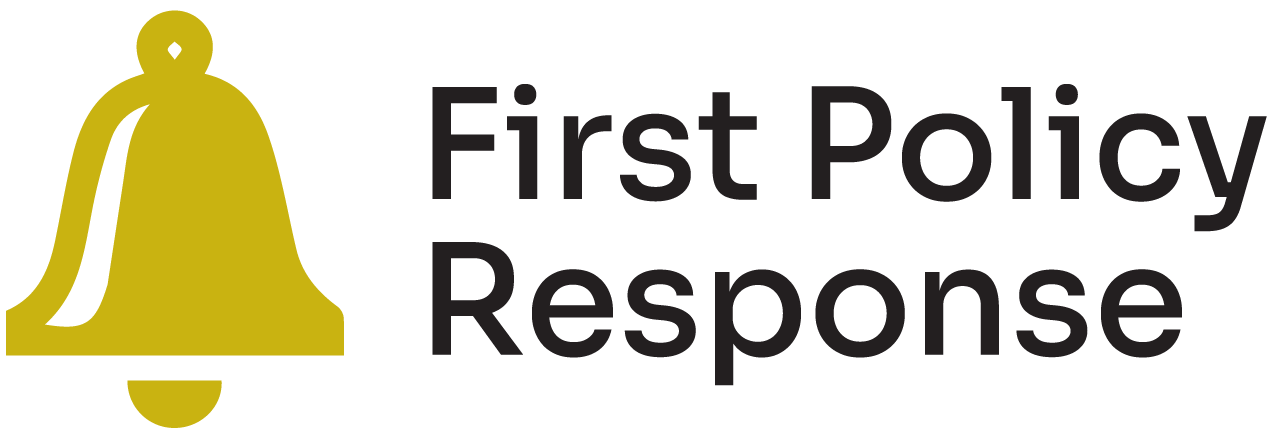
On Monday, the federal government released its long-awaited 2021 budget. The financial plan featured $101 billion in new spending on top of more than $350 billion already spent on the COVID-19 crisis. The following day, First Policy Response convened a panel of policy experts across various sectors to discuss the implications of the budget on Twitter Spaces. Here are some key takeaways from our discussion:
Childcare
The federal budget proposed a record investment of $30 billion over five years to create a national $10-a-day childcare system by 2026. The money will be used to decrease costs, create new centres and hire more early childhood educators.
Kate Bezanson, an associate professor of Sociology at Brock University, welcomed the move, saying: “This is the most important policy for Canadian women, families and for our economy.” Anjum Sultana, the national director of public policy and strategic communications of YWCA Canada, added the investment could usher in a shift in how early childhood educators are compensated: “We can actually start paying [early childhood educators] what they deserve.”
Brian Dijkema, VP External Affairs at Cardus, pushed back on the idea of a national childcare program. He noted the importance of giving families choice and offering tailored support based on their needs — for instance, those who prefer keeping a parent at home with the kids — instead of implementing a one-size-fits-all model. But Monica Lysack, a professor of Early Childhood Education at Sheridan College, noted that most families have never truly had a choice on childcare because registered childcare centres have become increasingly unaffordable. Bezanson added, “We want people to have choices between equally excellent options.”
Long-term care
The federal budget also included $3 billion over the next five years to help provinces create new long-term care (LTC) standards. Tabatha Bull, president and CEO of Canadian Council for Aboriginal Businesses, noted the special need for LTC funding in Indigenous communities, which places added burdens on women in particular.
The budget also devoted $90 million over three years to launch initiatives to support low-income seniors seeking to age in place. Despite that funding, Michael Nicin, executive director of Ryerson University’s National Institute on Ageing, observed that the budget still largely focuses on reforms to institutional care. Policy analyst Brittany Andrew-Amofah echoed that there could have been more emphasis on assisting seniors seeking to age at home.
The budget also included $12 billion over five years to increase Old Age Security for seniors age 75 and older, which Nicin lauded as a positive step toward ensuring the financial security of our oldest seniors.
Climate
The federal budget proposed $17 billion in new direct spending and tax relief measures to decarbonize heavy industry, create a cleaner economy and generate new jobs. John McNally, senior research associate at Smart Prosperity Institute, noted that the COVID-19 pandemic upped the urgency of climate change. He said that while the 2021 budget reflects an ambitious level of commitment to climate action, it’s simply “additive to what we’ve been seeing on this file for a year now.”
He added that the green recovery needs to apply a feminist and intersectional lens, as women, for example, tend to face increased barriers in entering the environmental and green technology sector.
On offering tax incentives for green technology and energy-efficient renovations, Bull asked about associated supports for Indigenous peoples: “Any time there is a tax incentive, we always ask the question, where is the parallel support for First Nations people and businesses that don’t pay tax?”
Equity
The federal budget added an additional $8.9 billion to the Canada Workers Benefit in a boost to low-wage workers. It also included $400 million in this coming fiscal year for a temporary Community Services Recovery Fund, which Sultana and other representatives of Canadian charitable organizations had advocated for as a means to keep them afloat after a financially devastating year.
On the subject of amending digital inequities, Vass Bednar, executive director of McMaster University’s Master of Public Policy in Digital Society, pointed to a $4 billion investment to help businesses with technology planning. This includes an e-commerce initiative that would train and deploy a network of 28,000 young Canadians to help small and medium businesses digitize. Bednar said this will help smaller companies “not just modernize but digitize and thrive in a digital age.”
Finally, while Bull welcomed the $18 billion in supports to Indigenous communities as a good start, she said the budget could have done more to directly address the issue of systemic racism. Andrew-Amofah added: “This was not a racial justice budget.”
Event Date
Tuesday, April 20th, 2021
1-2PM
Event Hosts



